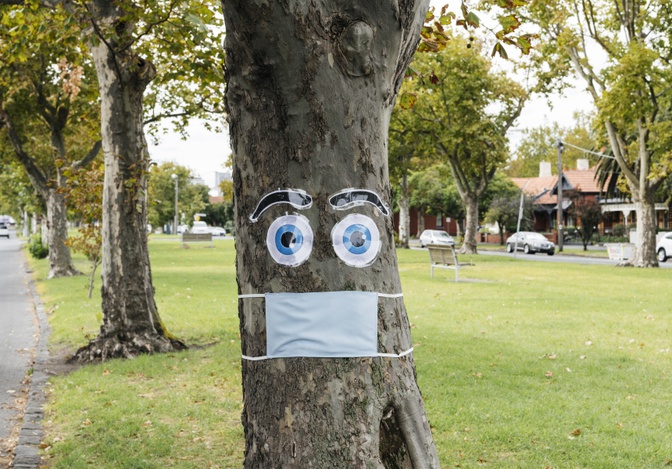Masks are now compulsory in public places throughout Melbourne. Here’s what it means for workplaces and employees.

Victorian Premier Daniel Andrews last week announced that wearing masks or face coverings would be mandatory in public places throughout Melbourne. The directive was put in place based on advice from the department of health and human services (DHHS) to help curb rising community transmission of coronavirus in Victoria.
You may want to wear a mask at work, or have been asked to do so by your employer. Physical distancing in workplaces is often more difficult than in public spaces, and you’re mixing with your colleagues for extended periods of time.
We’ve compiled a list of things your employer can and cannot ask of employees, as well as advice for non-healthcare workers who might not be used to wearing masks at work, according to Safe Work Australia.
If your employer thinks it’s necessary to reduce the risk of you being exposed to Covid-19, then yes. If you’ve been asked to wear a mask, your employer has to provide the mask, as well as training on how to safely wear, remove and dispose of the mask. All workplaces should already be practicing good hand hygiene, regular cleaning and physical distancing.
Generally, if your employer provides all the appropriate training and has reasonable grounds to request you wear a mask after consulting with you, then you will need to wear a mask. There’s no law that requires you to do so, but when health advice recommends masks in public, it’s good to be a team player.
Employees may feel more comfortable wearing a mask at work. Your employer can ask you not to wear a mask if it’s lawful and reasonable to do so. This is determined on a case-by-case basis by bodies such as Fair Work Australia, should complaints arise. There aren’t many scenarios where this would apply , but teachers, for example, might be asked not to wear masks around younger students (who are considered lower risk) to help with facial and visual learning cues. It’s best to discuss any concerns about health and mask use with your employer or Fair Work Australia if you feel you’re being treated unfairly.
The situation is quite new, but what we can say is that you can be asked not to wear a mask as long as the request is in line with workplace health and safety laws. Mask wearing makes up a bit of a grey area that has been lumped in with existing laws at short notice because of the nature of ever-changing circumstances surrounding the pandemic. Making allowances for requests to not wear masks are in place for exceptional circumstances and to give employers a bit of wiggle room, so we might see changes to these rules after some time.
Your employer should provide you with training if they require you to wear a mask, though application and usage is fairly straightforward. The World Health Organisation (WHO) has some resources here. Some important things to keep in mind are that your hands should be clean when putting a mask on, masks should be disposed of in a sealed bin where possible (an outdoor bin is best otherwise) and you should wash your hands after disposing of or touching masks.
View the DHHS information page on masks here, and Safe Work Australia’s mask information page here.
Photography: Pete Dillon



